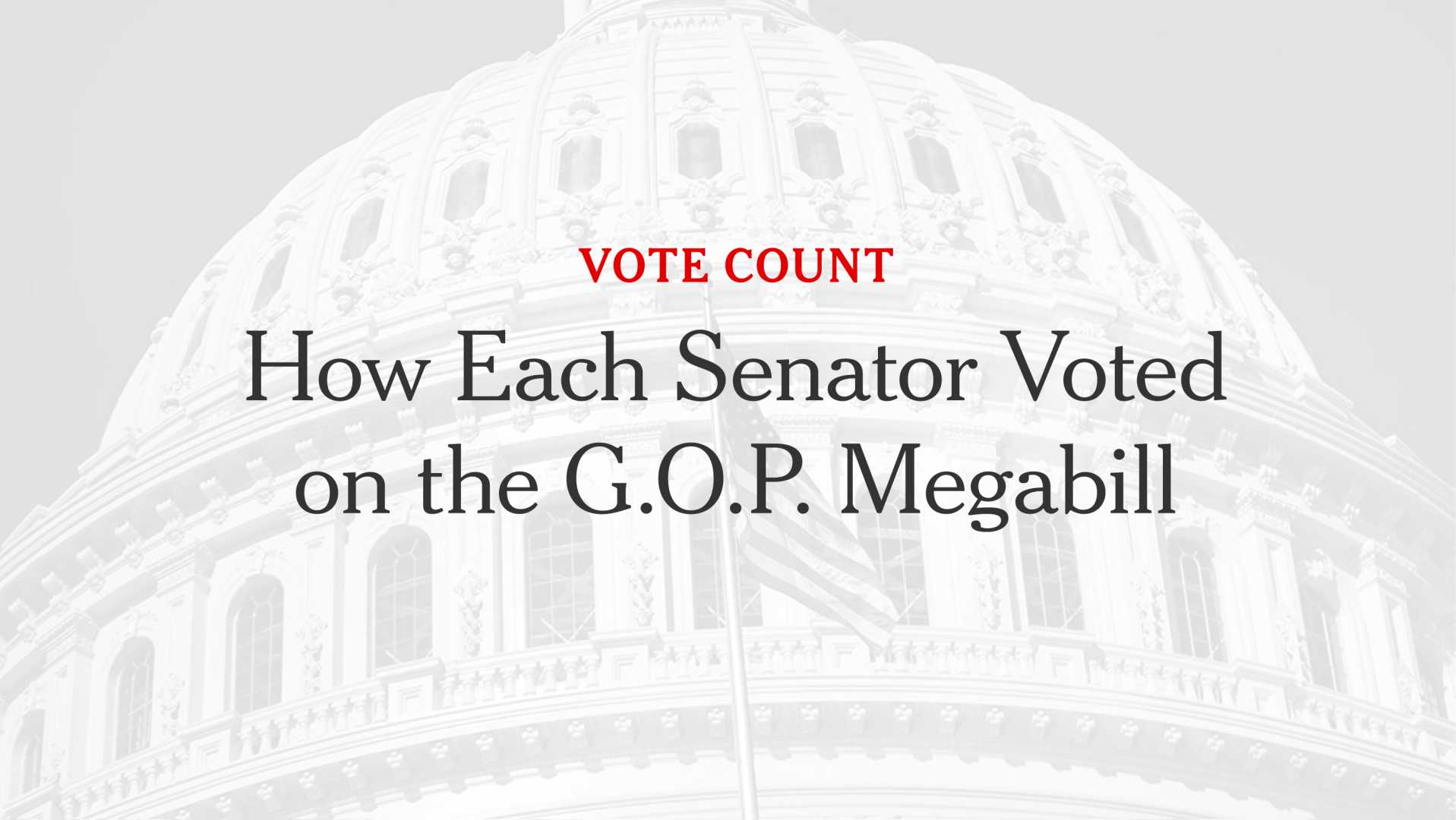Politics
Senate Approves Controversial GOP Megabill, House Vote Looms

Washington, D.C. — The Senate approved a significant GOP megabill on Tuesday, edging closer to President Trump’s legislative priority. The package passed narrowly with a tie-breaking vote from Vice President JD Vance, as several Republican senators opposed the bill.
The Senate’s vote was split, with Sens. Susan Collins (Maine), Rand Paul (Kentucky), and Thom Tillis (North Carolina) voting against it. The non-partisan Congressional Budget Office estimates the bill will increase the federal deficit by $3.4 trillion over the next decade and predicts that 11.8 million Americans could lose their health insurance due to changes in Medicaid and Obamacare.
While most Americans are likely to see continued decreases in their tax bills, the poorest 20% of U.S. households will experience an average income reduction of 2.9%. Households with incomes between $13,350 and $36,475 are expected to see flat income levels. In contrast, the top 60% of households, particularly the richest 20%, stand to benefit significantly from the changes.
To gain support from swing voters, including Sen. Lisa Murkowski (Alaska), the Senate made several amendments, such as dropping the proposed tax on solar and wind energy and easing adjustments to food stamp changes for Alaskan residents. An amendment also removed the moratorium on state regulations of AI.
The bill, officially titled “An Act to provide for reconciliation pursuant to title II of H. Con. Res. 14,” will return to the House, where Speaker Mike Johnson (Louisiana) aims to push the Senate’s version forward before the end of the day. However, he faces fierce resistance from more than 30 House Republicans, who have voiced serious concerns about the package. Johnson can only afford to lose three GOP votes for the bill to pass.
Last night, two conservative representatives, Chip Roy (Texas) and Ralph Norman (South Carolina), voted against the bill in the House Rules Committee, causing uncertainty about its future. If additional conservative votes are lost, it could force changes to the bill, requiring another Senate vote.
Internal divisions in the Republican conference complicate the situation further, with factions advocating for either increased spending cuts or caution against excessive cuts. Despite these tensions, Johnson has historically managed to unite House Republicans behind Trump’s initiatives, leaving the path to passing the bill open.
The urgency is heightened by travel delays affecting many House members returning to Washington, DC. Meanwhile, polls indicate that public enthusiasm for the bill remains tepid, with varying percentages of Americans expressing support or familiarity with its contents.
The Senate’s passage of the megabill, amidst critiques from various party members, illustrates ongoing challenges within the GOP. As the legislative process continues, the future of the bill lies in the hands of the House, where final decisions will unfold in the coming hours.












